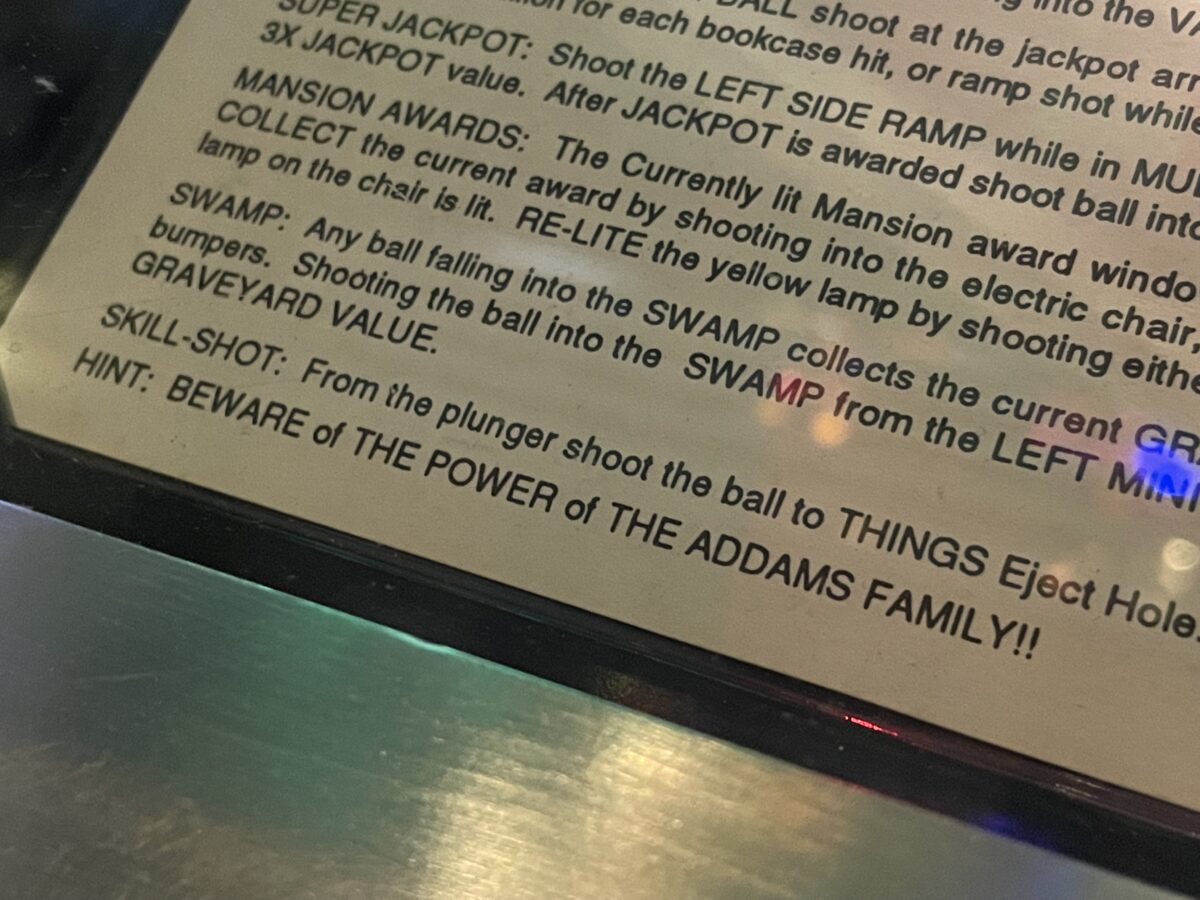It’s February 2023, and I’m standing in the back of Barcade St. Marks, quietly working my way through a two-credit game of The Addams Family pinball. Like many who grew up in the golden age of solid state pinball, it’s an old favorite.
To my right is a Data East Star Wars machine, circa 1992. It goes unoccupied until I start Ball 2, at which point I hear:
“How does THIS work?!”
It is clear whoever has approached the table is wholly unfamiliar with the concept of pinball.
Their date approaches, and tries – in a way that tries to assert knowledge while clearly not holding any – to explain.
“Oh, these buttons, on the side? They move the flippers!”
They collectively take another 30 seconds to realize they need to put coins in. By divine intervention, they find the start button.
Nothing happens. I try to focus on the game at hand, but alas.
“What do I do?!”
“Pull that back!”
“What?”
Perhaps worth noting here: Star Wars does not feature a traditional plunger, but instead a somewhat unique shifter handle with a launch button on the side. This, while unusual, is noted by the display flashing a picture of it with a giant arrow and “PRESS TO SHOOT” flashing on the display every few seconds.
The couple does not notice this. They just keep tugging on the handle in frustration.
At a break in my game, I do my most gentle and smooth lean-and-point.
“There’s a button.”
“OHHHHHH. Thank you!”
Their game begins, and it admittedly goes better than someone who has never even perceived the concept of pinball before could hope to do. The ball is staying in play and not just draining immediately.
And then it is not long before a friend of the couple slides up, and the following words are spoken:
“This is just like that song, Pinball Wizard!”
“Yeah, I think it’s based on the song!”
It was at this moment – with the implication either being the Star Wars pinball table, or the very concept of pinball itself, was inspired by The Who – that my soul left my body and I departed this mortal coil, leaving two free credits on the machine I was playing.
